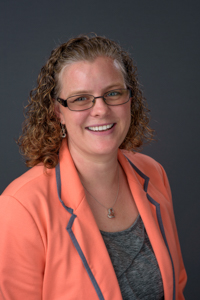Disability Services
Disability Services at Wilkes Community College is dedicated to ensuring equal access to programs, facilities, services, and activities for qualified students with documented disabilities. The focus of Disability Services is to magnify student ability and enhance disability awareness and understanding among students, faculty, and staff of the college.
Contact Information
The accommodation approval process may take up to three weeks. Accommodations are only in place from the date approved by the Disability Services Director; accommodations are not retroactive.
Accessible Information Management (AIM) Guides
Requesting Services / Registering with Disability Services
If you are a current or incoming student who has not registered with Disability Services, this is where you start. This guide reviews how to complete and submit your requests for academic accommodations.
Steps to Access the Request / Application Form:
- Visit the Student Portal
- Click on the Accessible Information Management (AIM) icon.
- You will be asked to complete a profile and then complete the application (Accommodation Request).
- Provide documentation to Disability Services by uploading it into AIM, dropping it off at Student Services, or if you need a form to take to a healthcare provider, please email wcc.access@wilkescc.edu.
Steps for Submitting Supporting Documentation:
- In the “File Title” box, type a name for the file you are wishing to upload. Common file names include, but are not limited to Medical Documentation, IEP, 504, etc. In the “Select File” box, click “Choose File” and select the file you wish to attach.
- When ready to submit, click the “Upload Documentation” button.
- If you do not wish to upload documentation at this time, you can click the “Upload Documentation Later” button.
If you have any questions or need additional guidance, please contact us via email at wcc.access@wilkescc.edu or call us at 336-838-6560.
Various Actions Through Your Portal
“Home” Navigation Box
- “My Dashboard” is your ‘overview’ page that lists any alerts or actions you need to take and a summary of the accommodations you have requested for the current semester.
- “My Profile” contains your personal information that is pulled from other college systems (e.g., Colleague). You can update some of this information, but changes here are not reflected in other WCC systems.
- “SMS (Text Messaging)” allows you to opt-in or out of text messaging features in AIM.
- “My Mailbox” will provide you with a list of all emails that were sent to you from your AIM system.
“My Accommodations” Navigation Box
- “Information Release Consents” allows you to complete release of information forms for Disability Services to communicate with the people you specify.
- “My Eligibility” provides you with a list of all the accommodations you are eligible to receive and descriptions of those accommodations.
- “List Accommodations” provides you with a list of the accommodations you have sent to your professor for the given semester and the status of those requests.
- “Course Syllabus” houses any of the course syllabi that your professors upload to the AIM portal. While these are not always required, it is helpful for us to have these when assisting students in navigating some accommodations.
Questions?
If you have any questions or need additional guidance, please contact us via email at wcc.access@wilkescc.edu or call us at 336-838-6560.
Frequently Asked Questions
Access to Achievement (A2A)
Access to Achievement (A2A) supports the development of best practices in vocational training for individuals with intellectual and developmental disabilities. This initiative provides students with financial and benefits counseling to enhance their access to credentials, diplomas, and degree programs. Additionally, it aims to promote inclusive college environments and raise community awareness about available opportunities.
The role of the Access to Achievement Coordinator is to help future and current students who self-disclose they have a disability find their path and provide support at Wilkes Community College.
The Access to Achievement Coordinator can help students with the following:
- Enrolling at Wilkes Community College
- Completing residency applications
- Requesting transcripts
- Filling out FAFSA forms
- Assisting students to find their academic pathway (certificate, diploma, degree)
- Supporting students with instructor communication
- Referring students for accommodations
- Finding employment support with programs like NC Works and EIPD (Employment and Independence for People with Disabilities, formerly known as VR, Vocational Rehabilitation).
You can contact the Access to Achievement Coordinator Holly Sagraves at hcsagraves904@wilkescc.edu or 336-838-6547.
Bridge to Success (B2S)
Bridge to Success is a new program to support students with intellectual and developmental disabilities at six community colleges in North Carolina. B2S is offered by NCDHHS Division of Employment and Independence for People with Disabilities (EIPD) in partnership with the NC Community College System.
Students with I/DD at these community colleges may apply for services through B2S. Eligible students will receive ongoing support from B2S as they pursue their education and prepare for their career.
Bridge to Success services may include:
- Vocational evaluation and counseling
- Career guidance and exploration
- Benefits counseling
- Assistive technology tools and training
- Job search and placement assistance
- Internships and other on-the-job opportunities
- Help with applications and interview
- On the job training and support
- Other services and supports depending on the students’ needs
Disability Services engages and supports all students and WCC employees by offering workshops, events, and connections. Our support services include (but not limited to):
- Student Well-Being
- Neurodiversity Awareness/Support
- Sense of Belonging
- Campus Engagement
- Club Participation
- Sensory-Friendly Space


